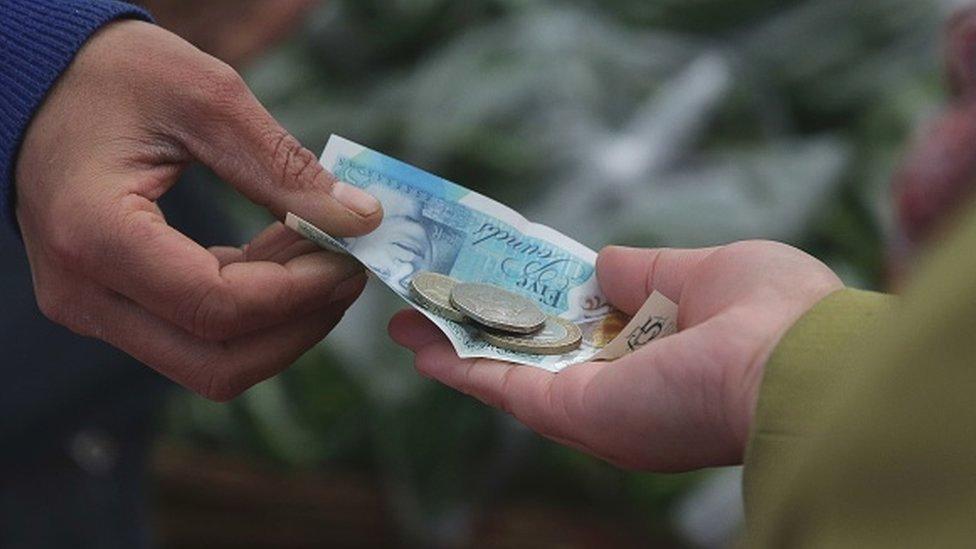'Cash is trash': Tough times for savers
- Published
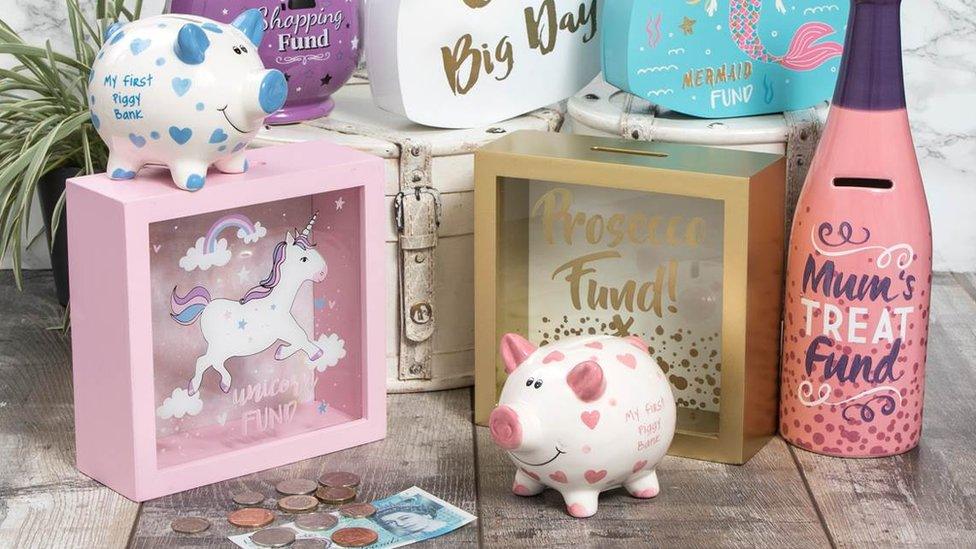
Our savings habit has never been so weak since data was first collected in 1963. Notes and coins have been overtaken by card and digital payments. Interest rates are still at a record low.
The current situation has prompted one financial expert to declare that "cash is trash".
So pity Jonny Greves, a buyer at Lesser and Pavey, whose job it is to import money boxes and piggy banks. Actually, he says, save your sympathy.
"Last year we noticed a rise in sales of money boxes which has continued into this year. It seems that no matter what the current market is like, a nice, themed money box always makes a good gift," he says.
"No matter how old someone is, they could be saving for something so a money box with the right design makes it easy."
While we might be turning to our digital devices and cards to pay for things, he says the jam jar savings habit remains healthy.
"As much as we are getting towards a cashless society, and I'm the worst for it, people are always going to have a few pounds in their pocket and when times are hard sometimes this is all people can afford to save, so there is no other place than a money box," he says.
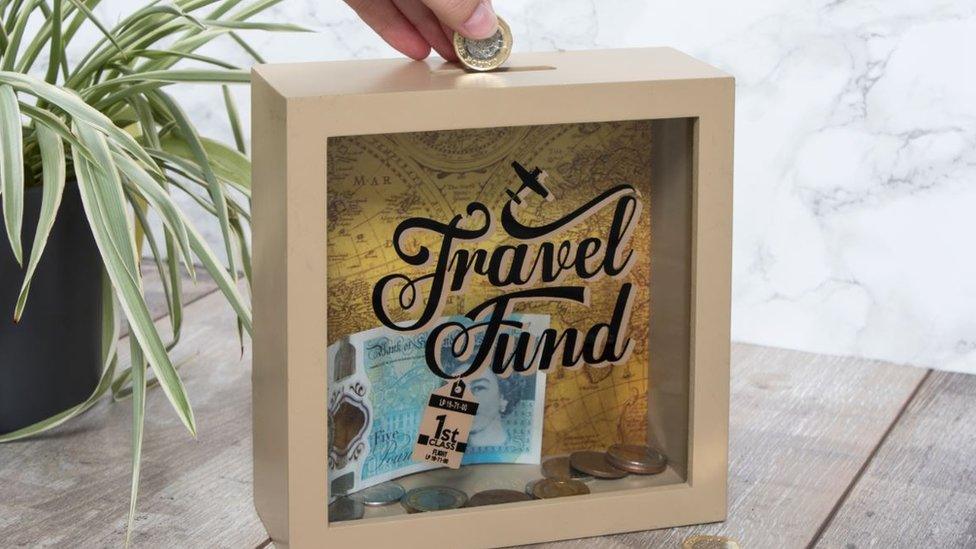
Yet, when the money box fills up, or bigger sums need to be set aside, data suggests the UK is less keen to put money into a bank account.
The saving ratio - which measures the outgoings and incomings that affect households and shows the percentage of disposable income that is saved - has been falling sharply for more than a year.
The Office for National Statistics (ONS) said the ratio stood at 1.7% from January to March, down from 3.3% in the previous quarter, and the lowest since records began.
While the Bank of England suggests that it could pick up again, it also warned this week that households with large savings may start to save less or run down their savings as household purchasing power falls.
A survey for the Bank showed that 60% of those who plan to keep spending the same in real terms had more than £15,000 of savings.
Those with higher debts, and less in savings, may need to reduce spending more quickly in order to continue to meet their debt repayments.
That is because prices are rising faster than wages which means, in real terms, that many people are worse off.
Household income is being squeezed, and borrowing is cheap. Interest rates on a £10,000 personal loan are close to record lows and the average interest-free period on credit card balance transfers has doubled since 2011, the Bank says.
Meanwhile, the rate of return on easy access savings accounts are as low as 0.01% a year - creating little incentive to save.
Analysts were particularly gloomy about the plight of savers after the eight members of the Bank's Monetary Policy Committee voted 6-2 to keep interest rates on hold at 0.25%. They have been at that level since August last year.
Tom Stevenson, investment director for personal investing at Fidelity International, says: "At the risk of sounding like a cracked record, cash remains trash in today's environment. With this in mind, anyone with savings still sitting in cash will continue to struggle to generate a real return."
Ross Andrews, director of fixed rate bond provider Minerva Lending, is equally pessimistic. "The struggle for people to keep their savings real has no obvious end in sight," he says.
"In this negative climate, more needs to be done to raise awareness of the savings risk, which is eroding people's savings pots in real terms."
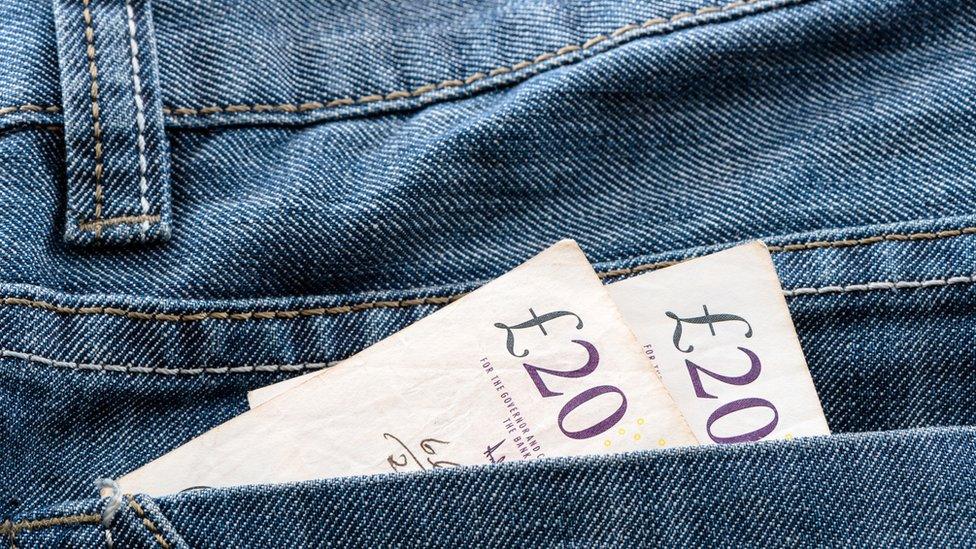
So why bother to save money, when the rising cost of living and lower rates of return mean it will actually be worth less than it is now?
Andrew Johnson, of the government-backed Money Advice Service, says that, whatever the rates, saving for a rainy day - such as when the boiler breaks down - still makes sense. He has three reasons to save:
Having a healthy savings buffer in an instant access account will give you peace of mind and can act as a cushion against unexpected financial shocks
Taking out a loan or other forms of credit can be expensive if used to pay for special purchases. Saving a little and often can make them more affordable when the time comes and helps reach long-term goals such as owning a home
Saving in a pension has a number of tax advantages as well as helping you achieve your income goals in retirement
There is another glimmer of hope for savers. Things are not as bad as they were, says Anna Bowes, director at independent savings advice website savingschampion.co.uk.
"The good news for savers is that competition - primarily between some key challenger banks - has been rife so far in 2017. Since the end of last year, the best easy access rate available has risen by 25% and fixed rate bonds have risen even more," she says.
"If you are sitting in a poor paying high street bank account, you don't need to wait for a base rate rise to see a marked improvement in the interest you can earn."
Interest rates on easy access savings accounts can be as low as 0.01% or as "high" as 1.2%. For anyone with savings or inheritance of £50,000 that means earning either £5 gross per year, or £600.
So, shopping around may pay. Some current accounts are paying rates of up to 5%, although only on smaller balances and with lots of terms and conditions to adhere too, she says. Longer term fixed rate bonds are paying up to 2.5% - but locking your money away for up to five years might not be the best option for many.
Time then to find a suitable home for your savings - or maybe just to dust off that old piggy bank.

Do you have an unusual home for your loose change? E-mail us at haveyoursay@bbc.co.uk, external
You can also contact us in the following ways:
Tweet: @BBC_HaveYourSay, external
WhatsApp: +447555 173285
Text an SMS or MMS to 61124 (UK) or +44 7624 800 100 (international)
Please read our terms & conditions
- Published3 August 2017
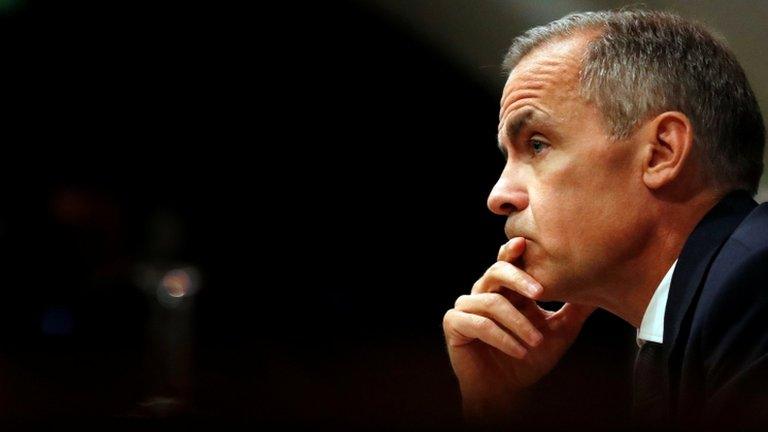
- Published30 June 2017
